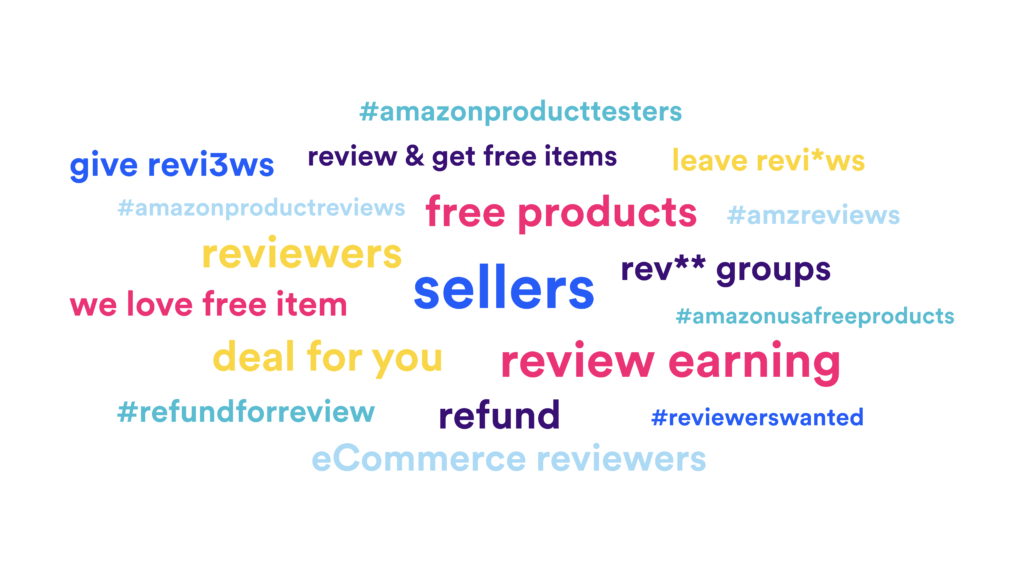Industry Knowledge
Addressing the Rise of Fake Reviews in Online Marketplaces
Today's ever-evolving digital landscape has further highlighted the impact online reviews have on businesses in key industries like eCommerce and the travel industry. User-generated online feedback has become a key source of information for prospective consumers. Given the power reviews have to influence consumer decisions, this has encouraged some to promote fake reviews on online platforms—either to enhance the reputation of their products or harm their competitors’. These coordinated schemes have raised fraud and deception issues that hinder the overall customer experience.

"Fake reviews" are generally defined as biased reviews that can either be positive or negative. These biased reviews have proliferated on platforms in recent years–a problem that has worsened since the onset of the COVID-19 pandemic. In 2020, a report from Fakespot analyzed reviews from leading marketplaces and showed that almost 31% of online reviews were deemed fraudulent1. Research conducted by Which? in the same year indicated that fake reviews are more than twice as likely to lead to consumers favoring low-quality products and services2.
Our Policy Research Lab observed this proliferation of coordinated fake review schemes on online marketplaces. From our observations, we crafted general recommendations to effectively address bad actors and diminish fake online reviews within ecommerce and social media platforms. This was done through a five-step research methodology involving overall screening and investigation, detection, analysis, evaluation, and recommendation for platforms affected by fake review schemes.

Our observations brought 5 key findings to light:
- Recruiter Coordination Process and Patterns
We monitored how the recruitment of fake reviewers takes place and found out that bad actors use far-reaching social media groups, servers, and hashtags to enlist and coordinate with recruits. Our monitoring also revealed that these fake review schemes follow similar patterns on all of the platforms; namely, the use of intentionally misspelled keywords such as “n33d r3vi3w” and “am*zon” to circumvent automated detection, with most of the communication being done through private messaging channels.
Interestingly, these coordinated schemes continue to run rampant despite the existing policies that social media platforms have against fraud. Some common behavior patterns we found among these review coordination communities are that most of them originate in India or China, and that they typically use service logos, country flags, and specific tags to attract more followers. These online groups also organize events to recruit more fake reviewers within their ranks, with most admins and members claiming to be "working for" or professionally associated with leading names in the online marketplaces and social media industry. There are also the so-called “superspreaders” who enable fast-tracking recruitment by aggressively engaging in other online spaces and recruiting events.
- Name and Keyword Patterns
We also found out that these recruiters are using specific name patterns for their online groups to communicate with potential recruits and simultaneously remain undetected by machine learning algorithms. Although these groups can still be found through the autocomplete feature when searching, the most popular groups use name variations linked to the word “Review.” While most of the active locations remain unspecified, a large number of these users have either India or the United States as their locations on their profiles.
- Increase of Fake Reviews Over Time
Our research indicated the exponential growth of these activities on social media platforms during the pandemic. Nearly half of the fake reviewer accounts analyzed were created in 2021 alone, which is nearly the same number of user accounts created within the past 5 years combined. This spike in the number of these bad actors could be a result of the higher incentives being offered for such activities, as most consumers now favor online shopping and services amidst the ongoing COVID-19 health crisis.
- Targeting Online Marketplaces
Our Policy Research Lab also investigated several online marketplaces and found out that recruiter coordination follows similar patterns on each of the platforms, using social media groups as their main channel for recruitment. They tend to use a specific platform’s branding to entice potential members to join their private group, where they share documents and other details specific to the recruitment process.
A majority of the fake reviews on the most targeted ecommerce platforms were given out to deceive shoppers into buying low-budget products. Our research suggests that fake reviewers focus their efforts on certain price ranges and product categories. Most fake reviews came from products priced $40 and under within the following categories:
- Automotive
- Beauty and Personal Care
- Clothing Shoes and Jewelry
- Electronics
- Health & Household
- Home & Kitchen
- Patio Lawn & Garden
- Sports & Outdoors
- Tools & Home Improvement
- Toys & Games
In one marketplace, 90% of the sellers participating in these schemes are located in China, while the remaining 10% are located across Germany, Great Britain, USA, Hong Kong, Singapore, or remain unspecified. Other platforms have fake review groups originating from Bangladesh and Turkey.
Several groups are coordinating specifically to promote counterfeit products as well. In one of the social media platforms, we found groups that promote counterfeit luxury brands and make transactions by direct messaging hidden links to interested buyers.
- Testing the Usability of Extensions
We tested the FakeSpot and ReviewMeta extensions with a sample of 300 items containing reviews from several product buyer sheets. While each extension has their specific grading system, the need for human intervention is still very much apparent, as neither of them has an advantage in detecting biased fake online reviews. These extensions, however, can still provide the necessary information needed for the decision process based on the set criteria.
Our Recommendations for Online Marketplaces

The Policy Research Lab determined the following recommendations not only to detect fake review coordination early on but to establish processes to successfully diminish the number of these schemes in online marketplaces.
- Early Detection of Coordinated Fake Review Schemes
- Implementing comprehensive fraud and scam policies on platforms.
- Developing specific internal guidelines for moderators in case there is a need to investigate or escalate potential fake review coordination schemes.
- Actively monitoring suspicious online groups, which can be supplemented by equipping machine learning algorithms constantly updated with relevant keywords.
- Analyzing possible bad actors with a “risk score” based on a set indicator matrix during the investigation process.
- Decreasing Fake Reviews in Online Marketplaces
- Investigating and detecting fake review coordination schemes on external sources, especially social media platforms.
- Infiltrating the coordination process, leveraging the moderation process according to the information being exchanged through private channels.
- Extracting the parties currently involved in these schemes and permanently banning them from leaving reviews on marketplaces.
- Making an audit of reviewers according to their reviewing history to better distinguish authentic reviewers.
- Prioritizing cases of fake reviews on products within the most affected price range of $40 and under.
- Closely investigating low-priced listings originating from China with advanced moderation technology powered by highly-trained moderators.
- Initiating a collaboration between trust & safety experts, legitimate platform users, and legal entities through a customer support channel dedicated for reporting fake review schemes.
Addressing Fake Reviews in Online Marketplaces
TaskUs’ Policy Research Lab, housed under its Trust & Safety service line, provides extensive investigations into the most prevalent fraud and scam issues found within today’s leading online marketplaces and platforms–including fake online reviews. Through our investigations, we craft fraud prevention services and policy recommendations specifically designed to address these issues, ultimately bringing a safer user experience to every consumer.
References
We exist to empower people to deliver Ridiculously Good innovation to the world’s best companies.
Services









